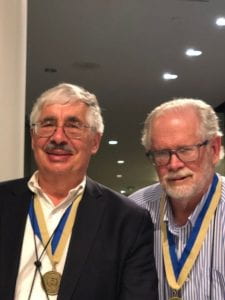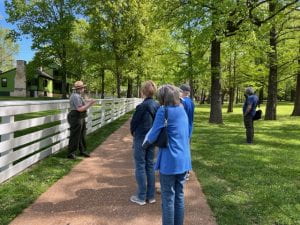What is our [man’s] chief end? Our [Man’s] chief end is to glorify God, and to enjoy God for ever. Westminster Shorter Catechism
The defining words of Christian life are the praising and the living. My second miracle was how I learned both of these ends.
For some young Christians in the 1970’s, the yearning for “more” was satisfied by the “Baptism of the Spirit.” Mainline Christians became “charismatic,” experiencing what Pentecostal Christians had been practicing for decades: speaking in tongues, interpretation, prophesying, singing in the spirit. Pentecostalism had gone mainline across the denominations, even in the Catholic church. Christians who received this gift called themselves “completed Christians.”
One Sunday evening, in search of this completion, I drove to Mount Vernon, N.Y., about forty miles from my home. It was a Presbyterian church, pastored by Harold Bredesen, an outspoken, published, charismatic Christian. I sat in a large sanctuary listening to Christians of diverse denominations singing and speaking in tongues. A few stood up and interpreted tongues in English. It was unlike any Presbyterian service I had ever attended.
At the end of the service I knelt on the steps of the platform in front of the altar. A “Spirit-filled” woman laid hands on me, while speaking in tongues. I didn’t feel anything and became nervous. She encouraged me: “Just start speaking, it will come.” Sure enough, when I opened my mouth to speak, I felt a rush of excitement, and I was speaking in tongues. It felt truly “charismatic.” It sounded to me like an Arabic tongue, but I never believed it was an identifiable language. It was more the excitement of praising God without processing the words. It was scintillating. I left the service with a new voice.
By the time I got home my parents were in bed. I went into my bedroom to pray, opened my mouth in praise, and the same rush of the Spirit filled me. I was speaking in tongues again. Excited, I went into my parents’ bedroom to tell them what had happened. My mother was perplexed, but glad for me. My father was asleep, so I didn’t know what he thought. His brother was a Pentecostal minister. We had visited his church, but tongues never happened for us. It seemed so foreign. My Dad said he had previously heard of Puerto Rican Christians speaking in Spanish, and that did not sound like a gift of the Spirit.
The next morning, Dad said he was glad about my gift, but guarded about what this meant. The baptism was nothing he expected to receive, but he never openly questioned the authenticity of my experience. I took some secret satisfaction that I had gone beyond my parents’ spiritual experience.
This was the second miracle in my life, but I link it with life in graduate school. Some doubt the authenticity of charismatic gifts, even many conservative Christian churches. For me, it was assurance that God was active in my life. It was the most physical manifestation of God I had experienced. It made faith less theoretical, more pervasive, at a time when faith was fragile, finding my way onto a new campus with a new direction.
I found a Presbyterian church in Cambridge like the place where I had “received the Spirit.” They had traditional services on Sunday morning, but charismatic services on Sunday evening and smaller groups teaching and worshipping in the Spirit on Wednesday night. It was also a college church, where students from Harvard and M.I.T. attended for the time they were students and then moved on. The pastor and church leaders felt this transient congregation was part of the mission of the church. It was a dynamic, multi-cultural church.
This church became my life through fifteen years. I found room mates from the church during graduate school. I found other room mates from graduation until I was married to Kathy Hessert in 1974. I found my wife in this church. I struggled to find a teaching job for two and a half years in this church. They prayed for my longing to teach.
I found my first full-time job from a member of the church. He taught me to be a bookkeeper. I found my first teaching job during this time. My employer let me out of work to go to every teaching interview I had, knowing I would be leaving when I was hired to teach.
I learned to live in Christian community in this church. The idea of maturing in faith kept us aspiring to change as a community. We formed small groups that made our faith more experiential. We had open discussions with each other about what we were learning about ourselves, about our shortcomings and gifts. Kathy and I shared leadership in one of the groups.
Kathy and I experimented with communal living with another couple from the church. It ended after a year, but we learned more about “life together.” To this day I have friends who shared our life together in the church, even though it went through a painful transition in our last five years there.
After I found my first teaching job we moved about fifteen miles away from church and infrequently went back to visit.
But in those fifteen years I learned how to “glorify God and and enjoy God forever.” There was glory and there was life. That was my second miracle.







 Where we ate and comforted and celebrated with our writing.
Where we ate and comforted and celebrated with our writing.



